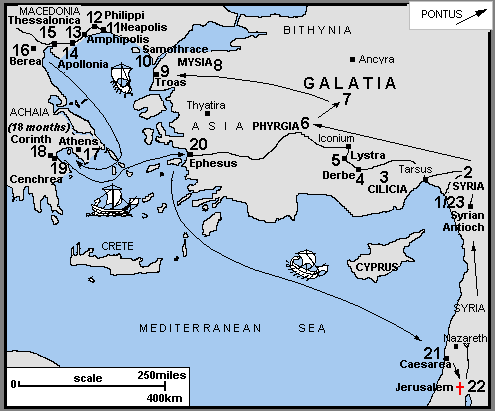- Nov 23, 2021
- 2,000
- 660

First Journey
So, Paul’s 1st journey was overwhelmingly in what we’d call present-day Turkey, quite a ways from Jerusalem. I conclude that the beliefs, practices, how we define various emotions, etc, etc, of what was to become mainstream Christianity— all this was already pretty far along!
I am NOT an expert in ancient history.
But if I had to guess, I say the mystery religion was already rolling 150 years before Paul’s start date of 44 AD. This would be 106 BC. Or, let’s say 100 BC for a round number.
• BC can also be called BCE, which means Before Common Era.
• AD also called CE, for Common Era
Last edited:




